The International Consortium for Law and Religion Studies (ICLARS)
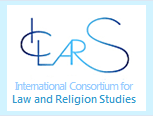
The International Center for Law and Religion Studies (ICLRS) has been heavily involved in the work of the The International Consortium for Law and Religion Studies (ICLARS) since its founding. ICLARS is an international network of scholars and experts in law and religion begun in 2007 with Professor Silvio Ferrari of the University of Milan as President. The purpose of ICLARS is to provide a forum for exchange of information, data, and opinions among members — at present from more than 40 countries — which can be made available to the broader scientific community.
Professor Ferrari (now Honorary President) was succeeded in 2011 as ICLARS President by Professor W. Cole Durham. Jr.. who is also Founding Director of ICLRS. Professor Ana María Celis Brunet…
ICLARS IV: “Freedom of/for/from/within Religion: Differing Dimensions of a Common Right?”
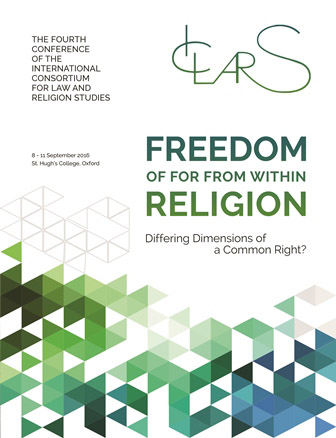
The Fourth Conference of the International Consortium for Law and Religion Studies (ICLARS) was held 8-11 September 2016 at St. Hugh’s College, Oxford, UK. This highly successful event brought together some 150 international experts from 37 countries to discuss the conference themes, “Freedom of/ for/ from/ within Religion: Differing Dimensions of a Common Right?”, to participate in two important book launches (see below*), and to share information about Journals, Book Series, and Associations, and Centers dealing with law and religion and religious freedom worldwide.
Recordings of sessions for the conference are now available here.
The conference was co-sponsored with ICLARS by the International Center for Law and Religion Studies (ICLRS) of Brigham Young University Law School, the University of Milan, and the Religion, Law and International Relations Programme of the Centre for Christianity and Culture of…
Cole Durham Named ICLARS President at Conference in Santiago, Chile – September 2011
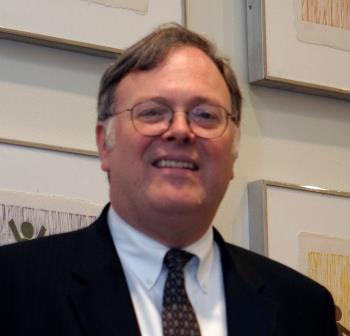
Professor W. Cole Durham, Jr., Director of the International Center for Law and Religion Studies (ICLRS) at Brigham Young University, was installed as President of the International Consortium for Law and Religion Studies (ICLARS) at the Second ICLARS Conference, held 8-10 September 2011 in Santiago, Chile. Professor Durham succeeds Professor Silvio Ferrari of Università degli Studi di Milano. Professor Robert Smith, ICLRS Managing Director, serves as member of the ICLARS Secretariat.
ICLARS is an international network of scholars and experts of law and religion. It began in 2007, with the aim of providing a place where information, data, and opinions could be exchanged among members and made available to the broader scientific community. To this end, ICLARS…
Religion and Equality: Law in Conflict
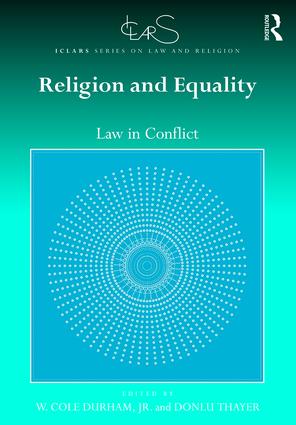
Religion and Equality: Law in Conflict
W. Cole Durham, Jr. and Donlu D. Thayer, eds.
ICLARS Series in Law and Religion
Routledge 2016
This volume presents an analysis of controversial events and issues shaping a rapidly changing international legal, political, and social landscape. Leading scholars and experts in law, religious studies and international relations, thoughtfully consider issues…
Religions and Constitutional Transitions in the Muslim Mediterranean
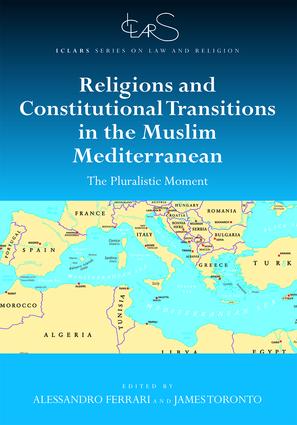
Religions and Constitutional Transitions in the Muslim Mediterranean
Alessandro Ferrari, James Toronto, eds.
Routledge ICLARS Series on Law and Religion 2016
This book investigates the role of Islam and religious freedom in the constitutional transitions of six North African and Middle Eastern countries, namely Morocco, Algeria, Tunisia, Egypt, Turkey, and Palestine. In particular, the book, with an interdisciplinary approach, investigates the role of Islam as a political, institutional…
Law, Religion, Constitution: Freedom of Religion, Equal Treatment, and the Law
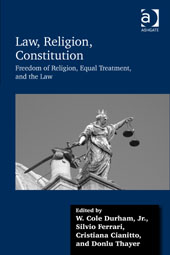
Law, Religion, Constitution: Freedom of Religion, Equal Treatment, and the Law
W. Cole Durham, Jr., Silvio Ferrari, Cristiana Cianitto, and Donlu Thayer, eds.
Routledge 2013
What is the place assigned to religion in the constitutions of contemporary States? What role is religion expected to perform in the fields that are the object of constitutional regulation? Is separation of religion and politics a necessary precondition for democracy and the rule of law?